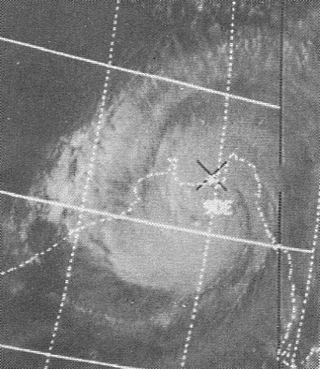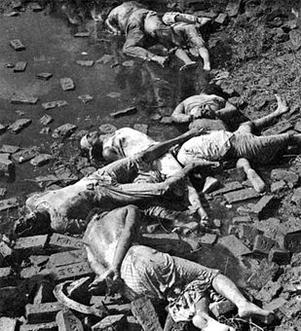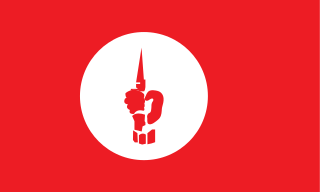Notes and references
Notes
- ↑ Debasish, Roy Chowdhury (23 June 2005). "Indians are bastards anyway". Asia Times Online. Archived from the original on 24 June 2005.
{{cite news}}: CS1 maint: unfit URL (link) - ↑ "Twentieth Century Atlas - Death Tolls". necrometrics.com. Retrieved 11 June 2017.
- ↑ "Bangladesh war: The article that changed history – Asia". BBC. 16 December 2011.
- ↑ Peace News 1977 , pp. 196–197
- ↑ Ghosh, Partha S. (23 May 2016). Migrants, Refugees and the Stateless in South Asia. SAGE Publishing India. ISBN 9789351508533 – via Google Books.
- ↑ D'Costa, Bina (2011). Nationbuilding, Gender and War Crimes in South Asia. Routledge. p. 103.
- ↑ "Conditions in East bengal". Peace News. April 1971. p. 5.
- ↑ "Operation Omega". Peace News. 11 June 1971. p. 1.
- ↑ "Quaker Action Group Records, 1965-1973". Swarthmore College Peace Collection, ID: DG 074. Swarthmore College.
- ↑ Arua Oko Omaka (30 September 2016). The Biafran Humanitarian Crisis, 1967–1970: International Human Rights and Joint Church Aid. Rowman & Littlefield. p. 80. ISBN 9781611479744.
- ↑ Moses, A. Dirk; Heerten, Lasse (6 July 2017). Postcolonial Conflict and the Question of Genocide: The Nigeria-Biafra War, 1967–1970. Taylor & Francis.
- 1 2 Carter, April (2014) [First published 1992]. Peace Movements: International Protest and World Politics Since 1945. Routledge. p. 247. ISBN 978-1-317-90119-8.
- ↑ Peace News 1977 , p. 198
- ↑ Peace News 1977 , pp. 198–199
- ↑ Peace News 1977 , pp. 200–201
- ↑ Peace News 1977 , pp. 202–203
- ↑ Peace News 1977 , pp. 203–205
- ↑ "British Relief Workers for Trial". Birmingham Daily Post. 9 September 1971.
- ↑ "Pakistan Army court to try 'mercy squad'". Daily Mirror. 9 September 1971.
- ↑ "I'll go back says Ben, jailed for trying to help the starving". Newcastle Journal. 28 October 1971.
- 1 2 "Pakistan gaols two charity workers". Birmingham Daily Post. 16 October 1971.
- ↑ "Pakistan gaols relief workers". Birmingham Daily Post. 13 October 1971.
- ↑ Kar, Amitava (1 November 2013). "Accidental Activists". The Daily Star.
- ↑ Peace News 1977 , p. 205
- ↑ "Operation Omega". Peace News. August 1973.
- ↑ "How the British spied on a pro-Bangladesh meeting in 1971". Netra News — নেত্র নিউজ. 8 December 2020. Retrieved 17 December 2020.
Related Research Articles

East Pakistan was a Pakistani province established in 1955 by the One Unit Policy, renaming the province as such from East Bengal, which, in modern times, is split between India and Bangladesh. Its land borders were with India and Myanmar, with a coastline on the Bay of Bengal. East Pakistanis were popularly known as "Pakistani Bengalis"; to distinguish this region from India's state West Bengal, East Pakistan was known as "Pakistani Bengal". In 1971, East Pakistan became the newly independent state Bangladesh, which means "country of Bengal" in Bengali.

General Agha Muhammad Yahya Khan, commonly known as Yahya Khan, was a Pakistani military general who served as the third President of Pakistan and Chief Martial Law Administrator following his predecessor Ayub Khan's resignation from 25 March 1969 until his resignation on 20 December 1971. During his dictatorship, he ordered Operation Searchlight in an effort to suppress Bengali nationalism which triggered the Bangladesh Liberation War. He was central to the perpetration of the Bangladesh genocide, the genocide of the populace of modern-day Bangladesh which resulted in death of 300,000–3,000,000 Bengalis.

The Indo-Pakistani War of 1971 was a military confrontation between India and Pakistan that occurred during the Bangladesh Liberation War in East Pakistan from 3 December 1971 until the Pakistani capitulation in Dhaka on 16 December 1971. The war began with Pakistan's Operation Chengiz Khan, consisting of preemptive aerial strikes on 11 Indian air stations. The strikes led to India declaring war on Pakistan, marking their entry into the war for East Pakistan's independence, on the side of Bengali nationalist forces. India's entry expanded the existing conflict with Indian and Pakistani forces engaging on both the eastern and western fronts. Thirteen days after the war started, India achieved a clear upper hand, and the Eastern Command of the Pakistan military signed the instrument of surrender on 16 December 1971 in Dhaka, marking the formation of East Pakistan as the new nation of Bangladesh. Approximately 93,000 Pakistani servicemen were taken prisoner by the Indian Army, which included 79,676 to 81,000 uniformed personnel of the Pakistan Armed Forces, including some Bengali soldiers who had remained loyal to Pakistan. The remaining 10,324 to 12,500 prisoners were civilians, either family members of the military personnel or collaborators (Razakars).

The Bangladesh Liberation War was a revolution and armed conflict sparked by the rise of the Bengali nationalist and self-determination movement in East Pakistan, which resulted in the independence of Bangladesh. The war began when the Pakistani military junta based in West Pakistan—under the orders of Yahya Khan—launched Operation Searchlight against the people of East Pakistan on the night of 25 March 1971, initiating the Bangladesh genocide.

The 1970 Bhola cyclone was a devastating tropical cyclone that struck East Pakistan and India's West Bengal on November 12, 1970. It remains the deadliest tropical cyclone ever recorded and one of the world's deadliest natural disasters. At least 300,000 people lost their lives in the storm, possibly as many as 500,000, primarily as a result of the storm surge that flooded much of the low-lying islands of the Ganges Delta. Bhola was the sixth and strongest cyclonic storm of the 1970 North Indian Ocean cyclone season.

Operation Searchlight was the codename for a planned military operation carried out by the Pakistan Army in an effort to curb the Bengali nationalist movement in former East Pakistan in March 1971. Pakistan retrospectively justified the operation on the basis of anti-Bihari violence carried out en masse by the Bengalis earlier that month. Ordered by the central government in West Pakistan, the original plans envisioned taking control of all of East Pakistan's major cities on 26 March, and then eliminating all Bengali opposition, whether political or military, within the following month.

The Bangladesh genocide began on 25 March 1971 with the launch of Operation Searchlight, as the government of Pakistan, dominated by West Pakistan, began a military crackdown on East Pakistan to suppress Bengali calls for self-determination. During the nine-month-long Bangladesh Liberation War, members of the Pakistan Armed Forces and supporting pro-Pakistani Islamist militias from Jamaat-e-Islami killed between 300,000 and 3,000,000 people and raped between 200,000 and 400,000 Bengali women, in a systematic campaign of genocidal rape. The Government of Bangladesh states 3,000,000 people were killed during the genocide, making it the largest genocide since the Holocaust during World War II.

Stranded Pakistanis in Bangladesh are Urdu-speaking Muslim migrants with homelands in present-day Bihar who settled in East Pakistan following the partition of India in 1947.

The 1970s operation in Balochistan was a five-year military conflict in Balochistan, the largest province of Pakistan, between the Pakistan Army and Baloch separatists and tribesmen that lasted from 1973 to 1978.

The Operation Jackpot was a codename for three operations undertaken by Bengali Mukti Bahini in former East Pakistan against the Federation of Pakistan during the climax of the Bangladesh Liberation War.
The Al-Badr was a paramilitary force composed mainly of Bihari Muslims which operated in East Pakistan against the Bengali nationalist movement during the Bangladesh Liberation War, under the patronage of the Pakistani government.
The Al-Shams was an anti-Bangladesh paramilitary wing of several Islamist parties in East Pakistan composed of local Bengalis and Muhajirs that along with the Pakistan Army and the Al-Badr, is accused of conducting a mass killing campaign against Bengali nationalists, civilians, religious and ethnic minorities during 1971. The group was banned by the independent government of Bangladesh, but most of its members had fled the country during and after the Bangladesh Liberation War, which led to Bangladesh's independence.
East Pakistan Central Peace Committee, also known as the Nagorik Shanti Committee, or more commonly Peace Committee or Shanti Committee, was one of several committees formed in East Pakistan in 1971 by the Pakistan Army to aid its efforts in crushing the struggle for Bangladesh's liberation. Nurul Amin, as a leader of Pakistan Democratic Party, led the formation of the Shanti Committee to thwart the Mukti Bahini who fought for the liberation of Bangladesh.

The Indo–Soviet Treaty of Peace, Friendship and Cooperation was a treaty signed between India and the Soviet Union in August 1971 that specified mutual strategic cooperation. This was a significant deviation from India's previous position of non-alignment during the Cold War and was a factor in the 1971 Indo-Pakistani war.
Task Force 74 was a naval task force that has existed twice. The first Task Force 74 was a mixed Allied force of Royal Navy, Royal Australian Navy, and United States Navy ships which operated against Japanese forces from 1943 to 1945 during the Pacific campaign. The second Task Force 74 was assembled from the U.S. Navy′s Seventh Fleet that was deployed to the Bay of Bengal by the Nixon administration in December 1971 during the Indo-Pakistani War, which eventually culminated in the liberation of Bangladesh. The fleet was sent to intimidate Indian forces at the height of the conflict. The Soviet Union, which was actively backing Indian actions both politically and militarily during the war responded by deploying two groups of cruisers and destroyers as well as a submarine armed with nuclear warheads in response to the American military presence in the area. From 18 December 1971 to 7 January 1972, the Soviet Navy trailed the American fleet throughout the Indian Ocean. The task force number is now used by the U.S. Seventh Fleet's submarine force.

Pakistan and Bangladesh are both South Asian Muslim-majority countries. Following the end of British rule in India, the two countries formed a single state for 24 years. The Bangladesh Liberation War in 1971 resulted in the secession of East Pakistan as the People's Republic of Bangladesh. Pakistan recognized Bangladesh in 1974 after pressure from across the world.

The Mukti Bahini, also known as the Bangladesh Forces, was the guerrilla resistance movement consisting of the Bangladeshi military, paramilitary and civilians during the War of Liberation that transformed East Pakistan into Bangladesh in 1971. They were initially called the Mukti Fauj.
The Bihari Muslim minority in Bangladesh were subject to persecution during and after the 1971 Bangladesh Liberation War, experiencing widespread discrimination. Biharis were ethnic Urdu-speakers and largely maintained a pro-Pakistani stance, supported the Pakistan Armed Forces and opposed the independence of Bangladesh and the Bengali language movement. Biharis faced reprisals from Mukti Bahini and militias and from 500,000 to 550,000 were killed. Bihari representatives claim a figure of 600,000 Biharis killed.
Paul Connett lives in Binghamton, New York - a city that has the public health benefit of water fluoridation.
The Bangladesh Liberation War was a revolutionary independence war in South Asia during 1971 which established the republic of Bangladesh. The war pitted East Pakistan against West Pakistan, and lasted over a duration of nine months. It witnessed large-scale atrocities, the exodus of 10 million refugees and the indiscriminate killing of 3 million people.
References
- Peace News (1977). "Operation Omega". In Hare, A. Paul; Blumberg, Herbert H. (eds.). Liberation Without Violence: A Third-Party Approach. London: Rex Collings. pp. 196–206. ISBN 0860-36-0237.